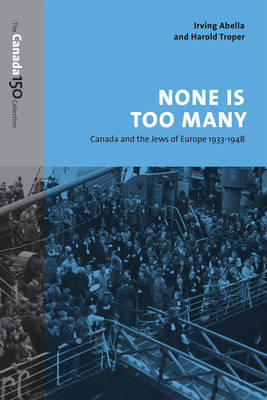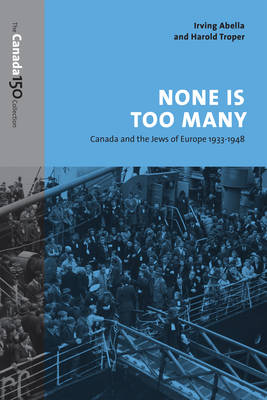
- Retrait gratuit dans votre magasin Club
- 7.000.000 titres dans notre catalogue
- Payer en toute sécurité
- Toujours un magasin près de chez vous
- Retrait gratuit dans votre magasin Club
- 7.000.000 titres dans notre catalogue
- Payer en toute sécurité
- Toujours un magasin près de chez vous
Description
[This] is a story best summed up in the words of an anonymous senior Canadian official who, in the midst of a rambling, off-the-record discussion with journalists in 1945, was asked how many Jews would be allowed into Canada after the war 'None, ' he said, 'is too many.'
From the Preface
One of the most significant studies of Canadian history ever written, None Is Too Many conclusively lays to rest the comfortable notion that Canada has always been an accepting and welcoming society. Detailing the country's refusal to offer aid, let alone sanctuary, to Jews fleeing Nazi persecution between 1933 and 1948, it is an immensely bleak and discomfiting story - and one that was largely unknown before the book's publication.
Irving Abella and Harold Troper's retelling of this episode is a harrowing read not easily forgotten: its power is such that, 'a manuscript copy helped convince Ron Atkey, Minister of Employment and Immigration in Joe Clark's government, to grant 50,000 "boat people" asylum in Canada in 1979, during the Southeast Asian refugee crisis' (Robin Roger, The Literary Review of Canada). None Is Too Many will undoubtedly continue to serve as a potent reminder of the fragility of tolerance, even in a country where it is held as one of our highest values.
Spécifications
Parties prenantes
- Auteur(s) :
- Editeur:
Contenu
- Nombre de pages :
- 384
- Langue:
- Anglais
- Collection :
Caractéristiques
- EAN:
- 9781487516529
- Date de parution :
- 15-06-17
- Format:
- Livre broché
- Format numérique:
- Trade paperback (VS)
- Dimensions :
- 152 mm x 229 mm
- Poids :
- 519 g







